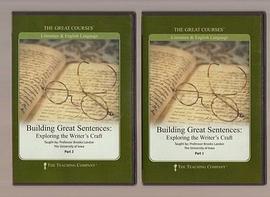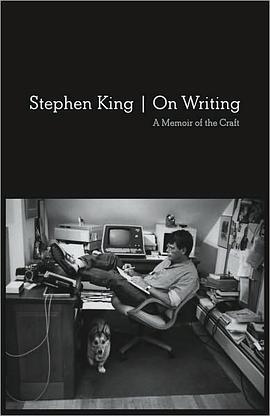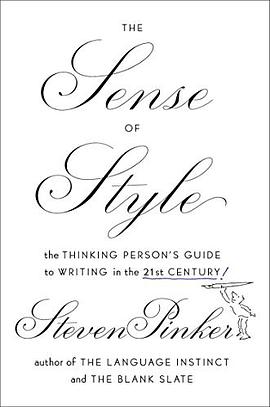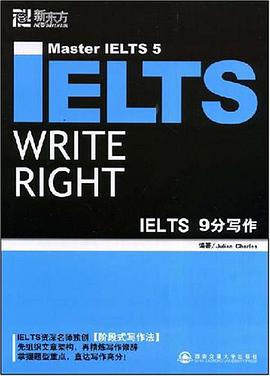Building Great Sentences (Audiobook) 豆瓣
作者:
Professor Brooks Landon
/
The Great Courses
The Great Courses
2008
Great writing begins—and ends—with the sentence.
Whether two words ("Jesus wept.") or 1,287 words (a sentence in William Faulkner's Absalom! Absalom!), sentences have the power to captivate, entertain, motivate, educate, and, most importantly, delight.
Understanding the variety of ways to construct sentences, from the smallest clause to the longest sentence, is important to enhancing your appreciation of great writing and potentially improving your own.
* Why do some lengthy sentences flow effortlessly while others stumble along?
* Why are you captivated by the writing of particular authors but not others?
* How can you craft sentences that reflect your own unique outlook on the world?
Get the answers to these and other questions about writing and style in Building Great Sentences: Exploring the Writer's Craft, a lively 24-lecture course taught by Professor Brooks Landon from the University of Iowa—one of the nation's top writing schools. You explore the myriad ways in which we think about, talk about, and write sentences. You discover insights into what makes for pleasurable reading. You also learn how you can apply these methods to your own writing.
More Than Just a String of Words
Building Great Sentences revives the sentence-oriented approach to studying writing. Unlike common nuts-and-bolts approaches to discussing writing, this course provides a greater context for what makes sentences great. You investigate how to recognize the mechanics of the sentences you read and write, you learn how language works on your thoughts and emotions, and you discover basic strategies to sharpen your ability to recognize great sentences and make your own everyday writing more effective.
More than just a string of words, "sentences are shaped by specific context and driven by specific purpose," notes Professor Landon. "No 'rules' or mechanical protocols can prepare us for the infinite number of tasks our sentences must accomplish."
Explore a Vast World of Sentences
Consisting of a subject, a verb, and sometimes an object ("The girl raised the flag."), the kernels from which sentences grow are called minimal base clauses. Adding modifying words ("slowly") or phrases ("because doing so would inspire her compatriots") creates larger sentences that lead toward great writing.
In Building Great Sentences, you delve into the ways that literary and popular writers work with these larger sentences (called cumulative sentences) and encounter the three distinct levels that enhance these sentence kernels by:
* Adding information and keeping a sentence moving in place ("She served the dessert, a French pastry affair dripping in dark chocolate.")
* Moving a sentence forward with increased specificity ("He drove carefully, one hand on the wheel, the other hand holding a sandwich, a ham and cheese fossil, a strangely colored lump made days before by his sister.")
* Adding information and moving a sentence forward at the same time ("Big Al headed back into the bar, a demented grin twisting his scarred face, his bloodshot eyes narrowed to a fierce squint, looking around the dim and smoke-filled interior, scanning the terrified inhabitants for any of his tormentors.")
You also explore sentence constructions that make writing more complex and add exciting levels of suspense, and you see tactics that create balance and rhythm in sentences. Professor Landon makes these writing methods clear and easy to apply to your own reading and writing habits. Some of the many illuminating methods you come across are:
* Using a mirroring effect between words to suggest confidence ("Dryden's page is a natural field, rising into inequalities, and diversified by the varied exuberance of abundant vegetation; Pope's is a velvet lawn, shaven by the scythe, and leveled by the roller.")
* Using three phrases of parallel construction to create unity and emphasis in a sentence ("I came, I saw, I conquered.")
* Beginning each element in a series with the same word or words ("The reason I object to Dr. Johnson's style is that there is no discrimination, no selection, no variety in it.")
* Ending each element in a series with the same word or words ("Raphael paints wisdom; Handel sings it, Phidias carves it, Shakespeare writes it, Wren builds it, Columbus sails it, Luther preaches it, Washington arms it, Watt mechanizes it.")
Recognizing and appreciating these and other eye-opening aspects of sentences helps you understand the work that goes into creating an effective, pleasurable sentence. With the newfound knowledge gained from Building Great Sentences, you become more aware of why particular lines, passages, or phrases in the poems, novels, or articles you read so enchant you.
Learn from the Masters
Building Great Sentences draws abundantly on examples from the work of brilliant writers who are masters in the craft of writing, including Don DeLillo, Virginia Woolf, Joan Didion, and Samuel Johnson. Their novels, essays, and short stories are frequently cited to illustrate how sentences can tease, surprise, test, and satisfy you.
Whether it was an epic poem, an 800-page novel, or a passionate op-ed in a local newspaper, you've no doubt been captivated by a particular line, passage, or phrase in something you've read—but you can't understand why. With Building Great Sentences, you get the secrets you need not only to recognize great writing, but also to understand what exactly makes it so great.
You also investigate numerous instances in which an author's writing style reflects key points in the lectures. For example:
* The opening paragraph of Ernest Hemingway's A Farewell to Arms reflects the author's "tough-guy" narrative style in its use of simple and direct writing.
* The lengthy sentences in Thomas Pynchon's Against the Day demonstrate the importance of enhancing writing through the use of figurative language.
* The final sentence of Joseph Conrad's The Secret Sharer displays just how much information can hide beneath the surface of sentences.
Professor Landon's animated readings of these and other examples (including some of his own sentences) help you grasp the various structures and rhythms of sentences. They also give you new ways to look at why these and other writing styles have delighted so many readers.
Avoid Dense Grammar
Building Great Sentences provides you with key insights into the craft of writing, but it never becomes a dull grammar lesson. Rather, the course is designed as a study of sentences within the larger framework of prose style and writing theory.
Grammar is only used to address larger issues about writing; as you examine the rewards (and potential risks) of various sentence forms, you never become bogged down in a study of dense grammar.
You focus on why and how these various sentence forms use language to achieve particular goals, not on labeling parts of a sentence. A thorough and helpful study of what makes for elegant and effective writing, notes Professor Landon, cannot depend solely on grammar.
A Passionate Approach to the Craft
Professor Landon is the Director of the General Education Literature Program at the University of Iowa and the recipient of the school's M. L. Huit Teaching Award. Having regularly taught a sentence-based prose style course at the University of Iowa for more than 25 years, he is the perfect guide to take you into the intricate pleasures of great sentences.
Building Great Sentences stems from Professor Landon's passion for a sentence-based approach to writing, commonly overshadowed by more technical, theory-based approaches that ignore the pleasures of reading and writing.
You see Professor Landon's countertraditional approach—emphasizing the pleasure of language and not the avoidance of mistakes. This method makes this course a unique way to experience and understand the pleasure that Gertrude Stein found in the sequences of words that constitute our sentences.
With its passionate approach to writing and reading, and its indulgence in the sheer joy of language, Building Great Sentences will change the way you read and write. It's a journey that gives you unique insights into the nature of great writing—it also teaches you how you can achieve some of this greatness yourself.
Whether two words ("Jesus wept.") or 1,287 words (a sentence in William Faulkner's Absalom! Absalom!), sentences have the power to captivate, entertain, motivate, educate, and, most importantly, delight.
Understanding the variety of ways to construct sentences, from the smallest clause to the longest sentence, is important to enhancing your appreciation of great writing and potentially improving your own.
* Why do some lengthy sentences flow effortlessly while others stumble along?
* Why are you captivated by the writing of particular authors but not others?
* How can you craft sentences that reflect your own unique outlook on the world?
Get the answers to these and other questions about writing and style in Building Great Sentences: Exploring the Writer's Craft, a lively 24-lecture course taught by Professor Brooks Landon from the University of Iowa—one of the nation's top writing schools. You explore the myriad ways in which we think about, talk about, and write sentences. You discover insights into what makes for pleasurable reading. You also learn how you can apply these methods to your own writing.
More Than Just a String of Words
Building Great Sentences revives the sentence-oriented approach to studying writing. Unlike common nuts-and-bolts approaches to discussing writing, this course provides a greater context for what makes sentences great. You investigate how to recognize the mechanics of the sentences you read and write, you learn how language works on your thoughts and emotions, and you discover basic strategies to sharpen your ability to recognize great sentences and make your own everyday writing more effective.
More than just a string of words, "sentences are shaped by specific context and driven by specific purpose," notes Professor Landon. "No 'rules' or mechanical protocols can prepare us for the infinite number of tasks our sentences must accomplish."
Explore a Vast World of Sentences
Consisting of a subject, a verb, and sometimes an object ("The girl raised the flag."), the kernels from which sentences grow are called minimal base clauses. Adding modifying words ("slowly") or phrases ("because doing so would inspire her compatriots") creates larger sentences that lead toward great writing.
In Building Great Sentences, you delve into the ways that literary and popular writers work with these larger sentences (called cumulative sentences) and encounter the three distinct levels that enhance these sentence kernels by:
* Adding information and keeping a sentence moving in place ("She served the dessert, a French pastry affair dripping in dark chocolate.")
* Moving a sentence forward with increased specificity ("He drove carefully, one hand on the wheel, the other hand holding a sandwich, a ham and cheese fossil, a strangely colored lump made days before by his sister.")
* Adding information and moving a sentence forward at the same time ("Big Al headed back into the bar, a demented grin twisting his scarred face, his bloodshot eyes narrowed to a fierce squint, looking around the dim and smoke-filled interior, scanning the terrified inhabitants for any of his tormentors.")
You also explore sentence constructions that make writing more complex and add exciting levels of suspense, and you see tactics that create balance and rhythm in sentences. Professor Landon makes these writing methods clear and easy to apply to your own reading and writing habits. Some of the many illuminating methods you come across are:
* Using a mirroring effect between words to suggest confidence ("Dryden's page is a natural field, rising into inequalities, and diversified by the varied exuberance of abundant vegetation; Pope's is a velvet lawn, shaven by the scythe, and leveled by the roller.")
* Using three phrases of parallel construction to create unity and emphasis in a sentence ("I came, I saw, I conquered.")
* Beginning each element in a series with the same word or words ("The reason I object to Dr. Johnson's style is that there is no discrimination, no selection, no variety in it.")
* Ending each element in a series with the same word or words ("Raphael paints wisdom; Handel sings it, Phidias carves it, Shakespeare writes it, Wren builds it, Columbus sails it, Luther preaches it, Washington arms it, Watt mechanizes it.")
Recognizing and appreciating these and other eye-opening aspects of sentences helps you understand the work that goes into creating an effective, pleasurable sentence. With the newfound knowledge gained from Building Great Sentences, you become more aware of why particular lines, passages, or phrases in the poems, novels, or articles you read so enchant you.
Learn from the Masters
Building Great Sentences draws abundantly on examples from the work of brilliant writers who are masters in the craft of writing, including Don DeLillo, Virginia Woolf, Joan Didion, and Samuel Johnson. Their novels, essays, and short stories are frequently cited to illustrate how sentences can tease, surprise, test, and satisfy you.
Whether it was an epic poem, an 800-page novel, or a passionate op-ed in a local newspaper, you've no doubt been captivated by a particular line, passage, or phrase in something you've read—but you can't understand why. With Building Great Sentences, you get the secrets you need not only to recognize great writing, but also to understand what exactly makes it so great.
You also investigate numerous instances in which an author's writing style reflects key points in the lectures. For example:
* The opening paragraph of Ernest Hemingway's A Farewell to Arms reflects the author's "tough-guy" narrative style in its use of simple and direct writing.
* The lengthy sentences in Thomas Pynchon's Against the Day demonstrate the importance of enhancing writing through the use of figurative language.
* The final sentence of Joseph Conrad's The Secret Sharer displays just how much information can hide beneath the surface of sentences.
Professor Landon's animated readings of these and other examples (including some of his own sentences) help you grasp the various structures and rhythms of sentences. They also give you new ways to look at why these and other writing styles have delighted so many readers.
Avoid Dense Grammar
Building Great Sentences provides you with key insights into the craft of writing, but it never becomes a dull grammar lesson. Rather, the course is designed as a study of sentences within the larger framework of prose style and writing theory.
Grammar is only used to address larger issues about writing; as you examine the rewards (and potential risks) of various sentence forms, you never become bogged down in a study of dense grammar.
You focus on why and how these various sentence forms use language to achieve particular goals, not on labeling parts of a sentence. A thorough and helpful study of what makes for elegant and effective writing, notes Professor Landon, cannot depend solely on grammar.
A Passionate Approach to the Craft
Professor Landon is the Director of the General Education Literature Program at the University of Iowa and the recipient of the school's M. L. Huit Teaching Award. Having regularly taught a sentence-based prose style course at the University of Iowa for more than 25 years, he is the perfect guide to take you into the intricate pleasures of great sentences.
Building Great Sentences stems from Professor Landon's passion for a sentence-based approach to writing, commonly overshadowed by more technical, theory-based approaches that ignore the pleasures of reading and writing.
You see Professor Landon's countertraditional approach—emphasizing the pleasure of language and not the avoidance of mistakes. This method makes this course a unique way to experience and understand the pleasure that Gertrude Stein found in the sequences of words that constitute our sentences.
With its passionate approach to writing and reading, and its indulgence in the sheer joy of language, Building Great Sentences will change the way you read and write. It's a journey that gives you unique insights into the nature of great writing—it also teaches you how you can achieve some of this greatness yourself.




